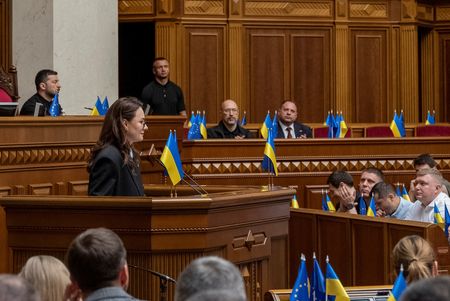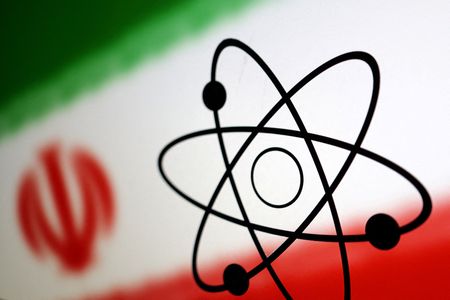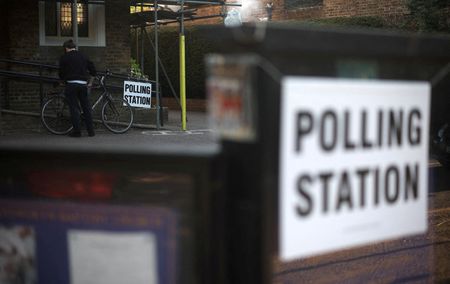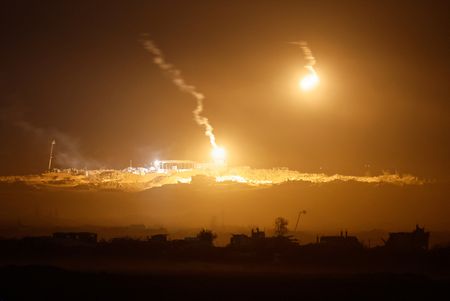PRAGUE (Reuters) -Slovakia will stop blocking the approval of the 18th package of European Union sanctions against Russia on Friday, Prime Minister Robert Fico said.
Fico said on Thursday Slovakia had achieved as much as it could at this point, after blocking the EU’s approval of the sanctions multiple times to demand guarantees against damages it fears from a separate EU plan to end all gas imports from Russia from 2028.
“At this point, it would be counterproductive to continue blocking the 18th sanctions package tomorrow,” Fico said in a video message posted on Facebook.
EU countries’ ambassadors will meet on Friday morning to approve the new sanctions, EU diplomats told Reuters.
The European Commission last month proposed the 18th package of sanctions against Russia for its 2022 invasion of Ukraine, aimed at Moscow’s energy revenue, banks, and military industry.
The proposed package included a floating price cap on Russian oil of 15% below the average market price of crude in the previous three months, EU diplomats have said.
The proposal would also ban transactions with Russia’s Nord Stream gas pipelines, as well as banks that engage in sanctions circumvention.
Slovakia has vetoed the package several times to try to win concessions on the separate plan to phase out Russian oil and gas, which, unlike sanctions, does not need unanimous support from EU countries.
Slovakia continues to import Russian energy, including gas under a contract running until 2034, and often takes pro-Russian views on Ukraine.
Fico said on Tuesday that Slovakia had received guarantees from the Commission on assistance in case of potential gas shortages or jumps in prices and transit fees, and assistance in disputes over potential damage claims from Russian supplier Gazprom.
The Commission said in a letter to Slovakia on Tuesday it would intervene in potential litigation, and also clarify how an “emergency break” can be triggered if gas prices spike because of scarce supply during the Russian gas phase-out.
Brussels will also develop a solution that aims to reduce the costs of cross-border tariffs on gas and oil for Slovakia, said the letter.
Malta had also previously expressed reservations about the proposed Russian oil price cap, but the government said on Thursday evening it would also support the new sanctions on Friday, EU diplomats told Reuters.
(Reporting by Jan Lopatka and Jason Hovet, additional reporting by Kate Abnett and Andrew Gray in Brussels, writing by Jan LopatkaEditing by Jason Hovet and Rod Nickel)








